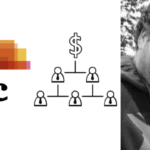Obtaining a Benefit by Deception

Have you been charged with obtaining a benefit by deception?
The charge is used for NSW offences that are alleged to have occurred before the commencement of the general offence of ‘section 192E fraud’ on 22nd February 2010.
There is also a similar Commonwealth offence of obtaining financial advantage by deception under section 134.2 of the Criminal Code Act.
The definition of obtaining a benefit by deception is fairly broad, and covers a wide range of different behaviours and things that are considered to be benefits.
What is considered to be a benefit?
The benefit obtained by deception doesn’t just refer to money.
Rather, a benefit can be anything that is of value, including property or other items that have a high monetary worth.
The deception can be a face-to-face one, or be done by using a computer, or gaining unauthorised access to information and using that to gain a benefit.
What factors will decide the penalty?
If you are found guilty of obtaining a benefit by deception there are a number of different considerations that the magistrate will take into account when deciding the severity of the penalty.
These include:
- The value of the benefit gained. The higher the value of the benefit that you gained by deception, the more likely you are to receive a harsher sentence, and the crime will be considered to be more severe than if the benefit you obtained was low in value.
- Degree of planning. If the crime was planned over a significant period of time, this may be treated differently by the court than if it was an opportunistic act carried out without much forethought or calculation.
- Length of time the deception was carried out over. If the deception was carried out over a long time this may impact the severity of the sentence handed out, and make it more likely that you will receive a longer or more severe penalty.
- The motive for committing the offence. If you can demonstrate that the deception was motivated by need, rather than by greed, the magistrate or judge may take that into consideration when deciding the outcome.
- The relationship between the person deceived and the defendant. If there was a breach of trust involved, such as a deception carried out by an employee against an employer, this may be treated differently than if the defendant had no prior relationship to the person who was deceived. A breach of trust is often considered to be an aggravating factor in a fraud charge.
There are also a few factors that may help reduce the severity of your penalty if you are found guilty of obtaining a benefit by deception. These include:
- Demonstrating remorse. If you can show that you are genuinely sorry for committing the offence, this shows that you understand the seriousness of your crime and you may be treated more leniently.
- Making reparations for any losses. If you are planning to make reparations to the victim for their losses, or you have already done so, this can help demonstrate remorse and may mean you receive a less harsh penalty.
- Having no prior record of fraud offences. If this is your first offence you may be able to get a less severe penalty than if you have a history of committing previous similar offences.
If you are facing charges of obtaining a benefit by deception it is important that you take them seriously.
If you are found guilty, you could end up in jail, so make sure you consult an experienced criminal lawyer for accurate advice and the best defence.
Receive all of our articles weekly
Author






